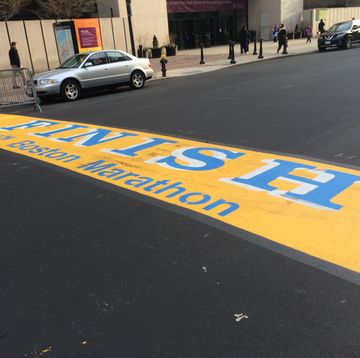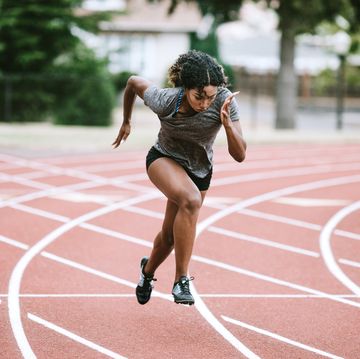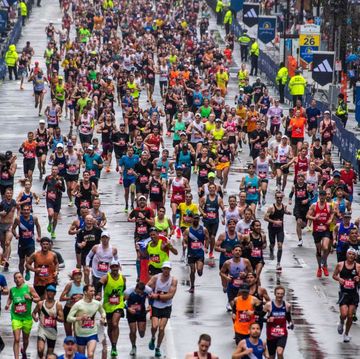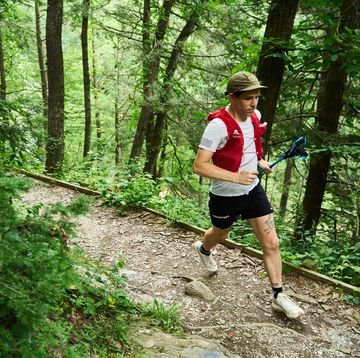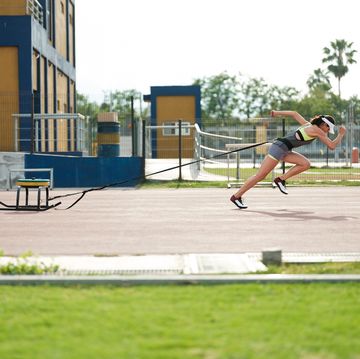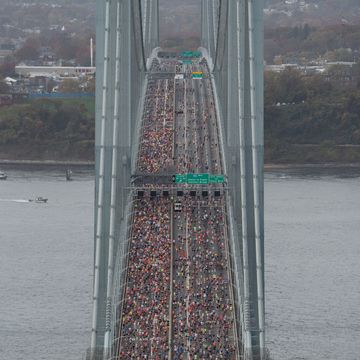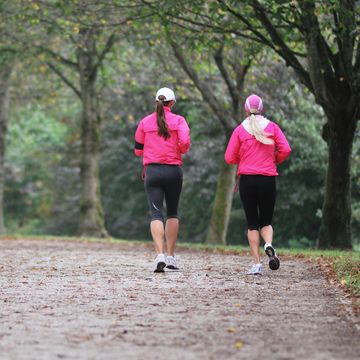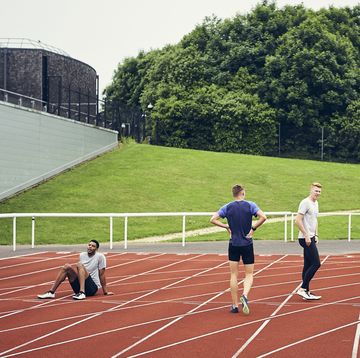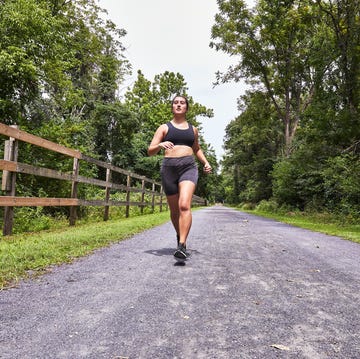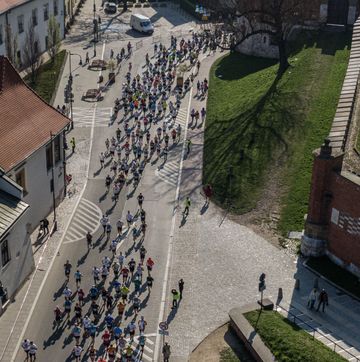Campbell was a surprise, finishing runner-up to Lawi Lalang of Arizona in the 3,000m and picking up 8 points for his team. His 7:46.95 was a seven-second personal best and capped a fine indoor season, which came on the heels of a 17th place finish at last fall’s NCAA cross country championships.
A junior transfer, the 5-foot-5 Campbell arrived in Fayetteville from his native Jamaica via South Plains College in Levelland, Texas, where he won two NJCAA individual titles (800m in May of 2011 and cross country the following fall). He didn’t have many role models to follow back in Jamaica, where sprinting is huge, but distance running is hardly on the radar. (Current LSU distance coach Mark Elliot holds the Jamaican outdoor national records at 3,000m, 5,000m and 10,000m, which he set in the late 1980s, before Campbell was even born.)
Campbell is a rarity in the sport for his range from 800m to 10K cross country, and his 3,000 at nationals gave him his first Jamaican open men’s indoor record. Running Times caught up with Campbell during his spring break, which he spent in Fayetteville training for the outdoor season.
Running Times: You came into the 3,000m at nationals seeded 15th of 16 entrants and ran a PR by seven seconds to finish second. How do you account for your performance?
Kemoy Campbell: I was kind of surprised, but the night before I had a baton drop [in the DMR] and I knew I had to make up for it some way. That was one of my intentions, to get some points for the team so we could actually win.
RT: What was your plan going into the race? Did you expect it to be really fast and that you were just going to hang in there as long as you could?
KC: Actually I was planning on winning it. But the race was rough, and we got like pushed and tripped. But it wasn’t a bad race and I got second and also the national record back in Jamaica, so I’m pretty satisfied with that.
RT: I can imagine dropping the baton in the DMR was a terrible experience. Do you recall what went through your mind at that moment?
KC: Yeah, it was really a bad experience, because that was my first time dropping the baton. And you know, it was one of those races where the points actually count for the team and dropping the baton made my mind just go unfocused for the next race. But my coach talked to me that night and said I could come back in the 3K and do pretty well. That kind of helped, but the baton drop was definitely a bad experience.
RT: Going back to the days of your childhood in Jamaica, how did you get started in the sport and develop your interest in distance running?
KC: At first I didn’t really like running and the only time I would run was to the shop, and I’d see how fast I could run there and back. And then we had a sports day at my school and one of the teachers forced me into the 5K, which I didn’t want to go in, and I actually did pretty well. I got third without training and beat some track guys from the school.
RT: You won just about everything as a junior in Jamaica and set several national junior records, plus you had a 8:20.14 victory in the high school 3,000m at the 2010 Penn Relays. How did you end up at South Plains College?
KC: I was planning on going to LSU and was recruited by Coach Elliot, but because of my scores on the SAT I just decided I would go to a junior college first.
RT: And what brought you to Arkansas from South Plains?
KC: Actually when I was in Jamaica back in high school I used to hear about Arkansas all the time, and when I started running really well at South Plains and won a couple of national titles, I was contacted by one of the coaches from Arkansas. I came on a visit last winter and really liked it so I decided to come here.
RT: You had excellent results right away last fall, winning your first meet [Panorama Farms Invitational] and eventually placing fourth at the SEC Championships and third at Regionals before finishing 17th at nationals. Were you surprised at how the season went?
KC: I was really surprised, because I don’t really like cross country that much and coming to Arkansas I thought at the NCAA championship it would be a lot harder to finish in the top 30. So when I finished 17th I was really surprised and now I’m really looking forward to next year to see what I can do.
RT: What’s the plan for this outdoor season? Do you expect to focus on the 1500m or the 5,000m?
KC: I like the 1500, but my coach says I’m better at the longer distances and I’m kind of starting to believe that. Over time I think I’ll be changing to the 3K and up, but for the outdoor season I’m just going to see what my 1500 times are like, and then I’ll make a decision from there. I’ll run a few 5Ks this spring also. I want to run 3:37 in the 1500, which would get me into the World Championships. I know if I can run 3:39 at the start of the season I can get down to 3:37 by the end of the season.
RT: Have you changed your training approach and workouts much since arriving at Arkansas?
KC: Yes, definitely, definitely. When I was back at South Plains I never did much mileage. But since I’ve been at Arkansas I’ve done a lot more mileage as well as speed work. So it’s balancing those two now, and it’s pretty much equal. That’s why I’ve been doing well at different distances. I ran about 85 miles a week during cross country and now I’m running about 65 miles a week.
RT: Do you prefer working out on the track, as opposed to trails or other surfaces? And which of your teammates do you generally train with?
KC: I definitely like working out on the track best but I like trails also. I work out with both the 1500-meter guys and the distance runners.
RT: You mentioned the World Championships so I know you’re looking at least a little beyond this spring. What about more long-term — would the 2016 Olympics be a goal?
KC: My goal for the World Championships this summer is just to make the team for Jamaica, and then I’ll find out what I need to work on to be one of the top contenders for the Olympics. One of the main things that I’m thinking about is that if I can actually go to the Olympics for Jamaica and win a medal in one of the distance events, even if it’s a bronze medal, it could change most of the mentality that says no one in our country can make it in distance running. That’s my main focus, to change that way of looking at it.


